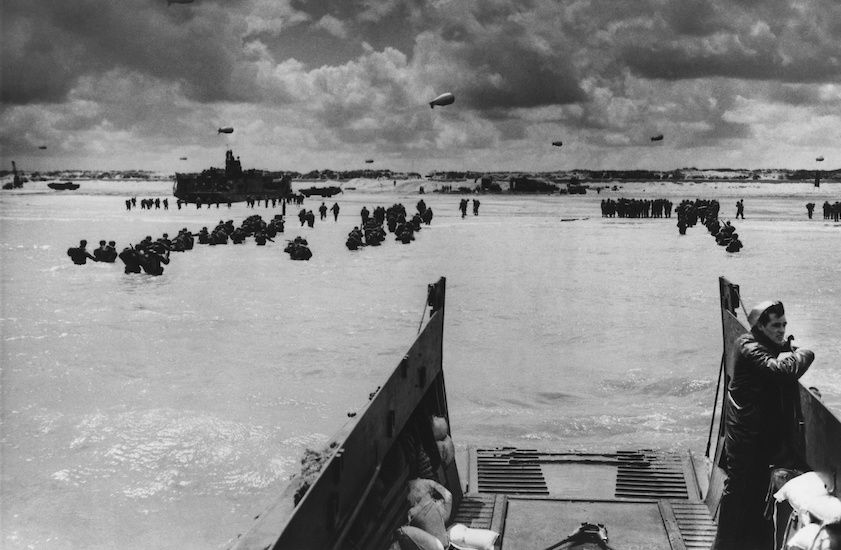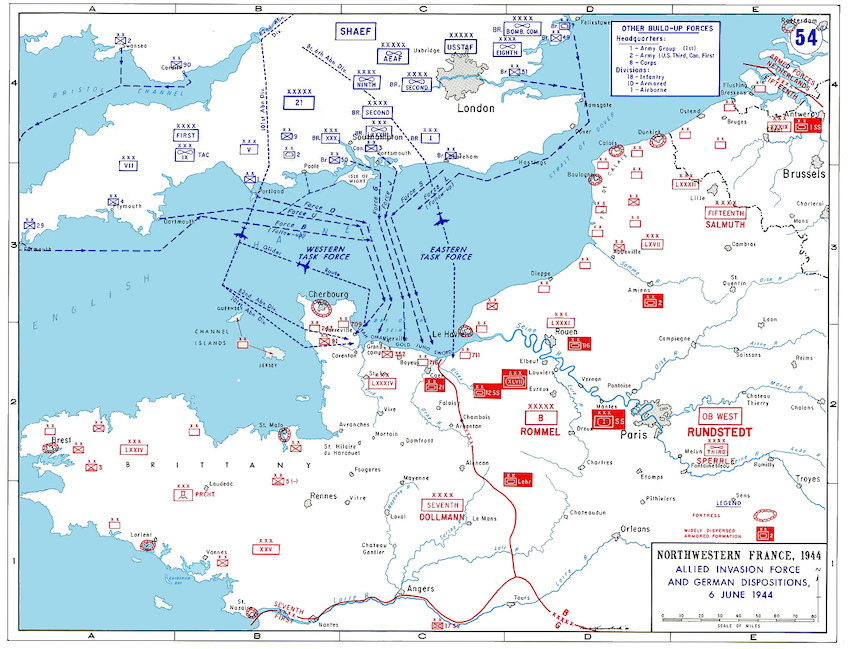


On the 80th anniversary of the D-Day Landings, Express has been exploring what it meant for people in Guernsey.
It was 6 June 1944 when Allied forces landed on the beaches of Normandy in a turning point of the Second World War.
The Channel Islands were liberated nearly a year later.
The impacts reverberated both before, during and after Operation Overlord.
You can listen here to our special podcast with Nick Le Huray, curator of the Island Fortress blog and co-host of the Islands at War podcast.
The drone of aircraft would have been unmistakable.
Overnight into the 6 June, the 82nd and 101st Airborne Divisions flew between Guernsey and the Normandy coast to drop thousands of paratroopers to help the invasion efforts on the beaches.
While the flights would have been heard from about 11pm on 5 June, there was initially a conspicuous lack of anti-aircraft fire from German troops on the island.
Several accounts indicate it was not until 02:00 or 03:00 that they started firing.

Pictured: A map of the Allied Invasion Force on D-Day which shows the routes flown near Guernsey.
At about 03:30 at the police station, sergeant Bob Kimber was told by a German solider that there was a general alarm. He was ordered to call out all police officers.
Civilian phone lines went dead.
Around two hours later Acting Inspector Lamy went to the German HQ at Grange Lodge and found the front door was locked.
He was let in through a French window. The German military staff were all gathered around one table which had a map of the Cherbourg peninsula spread out on it, the room lit by candles.
The aircraft noise was constant.
As daylight broke, islanders would have been able to see signs of the bombardment of the French coastline.
There was one casualty in Guernsey as an anti-aircraft shell fell back on the island, killing Mr Malbon in his Vale home at about 07:30.
The mood was upbeat as people listened in to the BBC and heard reports of progress. Rumours swirled that the German High Command had fled, but they had actually been at a conference in Rennes and were rushing back to the island.
Understandably it was not the only false bit of information that propagated.
German propaganda broadcast on radio said there had been a landing in the Channel Islands with a great loss of Allied parachutist and civilian lives. It even made the UK newspapers that day.
In the immediate aftermath of the invasion, armed German troops were seen all over the island.
Road blocks were set up. In the roads near Government House, the Germans attached large coils of barbed wires to the wall on one side and a hook on the other, ready to create a quick temporary barricade.
Submarine cables that had connected the islands to each other and Europe were disconnected.
The curfew was brought forward from 11pm to 9pm and all entertainment cancelled. Schools were temporarily closed. Beau Sejour and Cambridge Park football pitches were shut. All fishing was stopped. Beaches were closed. On 8 June the bus service was suspended.
Some people were apprehensive that the islands would be invaded because of the military defences. Others felt they would be by-passed and considered of little military value.
Small scale attacks of German military targets in Guernsey continued after D-Day, including on German U-boats that arrived in St Peter Port harbour.
On the evening of 14 June, Miss Adele Laine recorded in her diary that 10 American dive bombers attacked shipping in the harbour. Columns of smoke could be seen rising from the harbour. The next morning she recalled more bombers and more columns of smoke.
On 19 June at 08.40am a devastating bomb was dropped by the Allies in a raid by Lockheed Lightning Aircraft on the old harbour.
One bomb exploded just above the surface and blew out thousands of windows. 28 Germans killed or badly wounded.
Attacks timed for when minimum number civilians would be in the area
The same day, 24 civilian inmates in the prison petitioned the Bailiff to be let out during the state of emergency to take care of their loved ones. The request was rejected five days later in a private sitting of the Royal Court.
But as time moved on, any hopes of a quick liberation of the island evaporated. That was to come on 9 May.
Additional research from William Bell's Guernsey Occupied But Never Conquered.
Comments
Comments on this story express the views of the commentator only, not Bailiwick Publishing. We are unable to guarantee the accuracy of any of those comments.